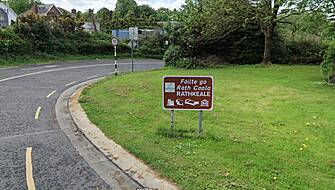Emergency medicine consultant Dr Niamh Collins has said that everyone has a duty to call out bad behaviour if they witness it. Society needed to recognise coercive control and to hold each other to account.
Dr Collins, who was instrumental in assisting the woman involved in the first coercive control case in the State, told RTÉ radio’s News at One that she had known patients who died as a result of domestic violence, and she had felt compelled “to step up” and “go the extra mile” for the woman at the centre of the case.
There had been “red flags” in the woman’s case and Dr Collins was aware that intervention needed to happen early.
Coercive control was a very common presentation at hospitals, she said. Emergency departments were places of safety and if anyone felt unsafe, even if they were not injured, they should go to the emergency department. “Come and we will support you.”
There was a silver lining from the pandemic, added Dr Collins, in the form of the no visitors policy which meant staff could have a direct conversation with a patient without the perpetrator in the room.
They feel they don’t have a voice here.
Advertisement
In a situation where one witnessed coercive behaviour, it should be called out, she said. One could say ‘what you said was mean’ and ask ‘did you intend to be hurtful?’
Dr Collins said the warning signs to watch out were – delay in attending hospital from time of injury; consistency of the story of how the injury was sustained; establishing the home situation; the financial situation, and she was particularly concerned about migrant groups where their visa was dependent on the perpetrator.
“They feel they don’t have a voice here.”
There were many reasons why people stayed in such situations such as the lack of any financial control and practical reasons such as their children being settled in school in the area. “The controller has paralysed them.”
Victims were constantly undermined, told they were stupid, worthless and incompetent, she said. Very often staff in hospital knew that they could not change the circumstances immediately and had to accept that the victim might not be ready to accept help.
If you need advice or support regarding domestic abuse or coercive control, you can contact Women's Aid 24-hour National Freephone Helpline 1800 341 900, or if you require urgent assistance, contact emergency services by ringing 999. Gardaí have also confirmed the current 5km travel limit does not apply to people escaping situations of domestic abuse.







